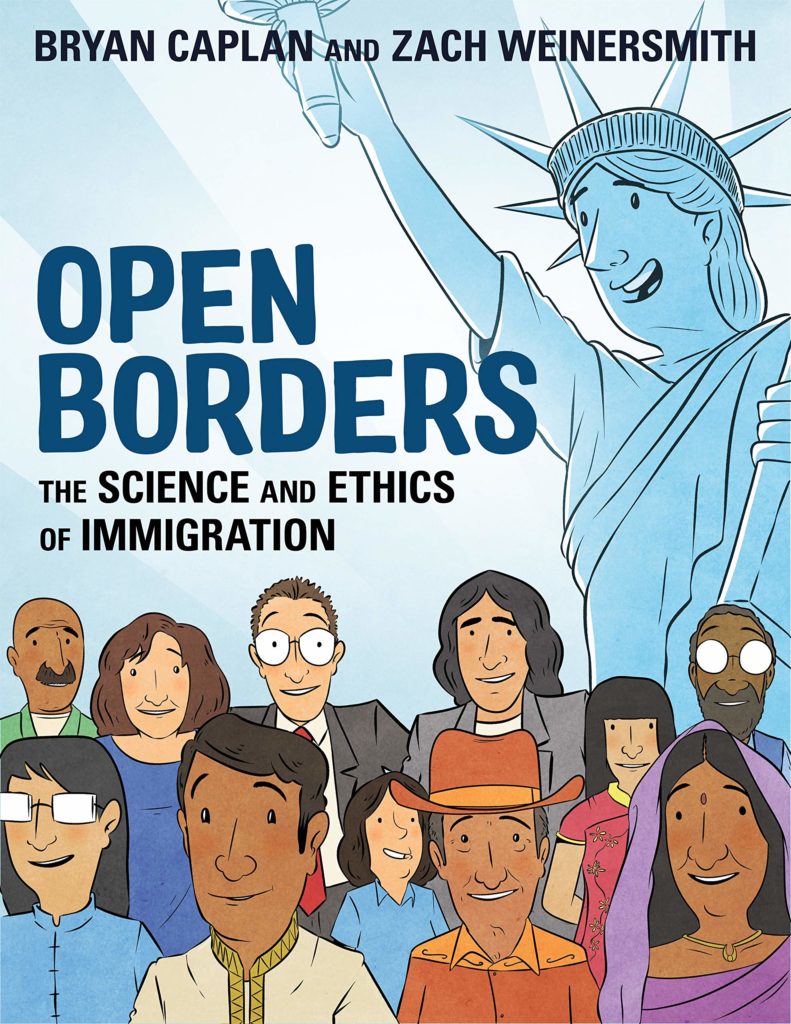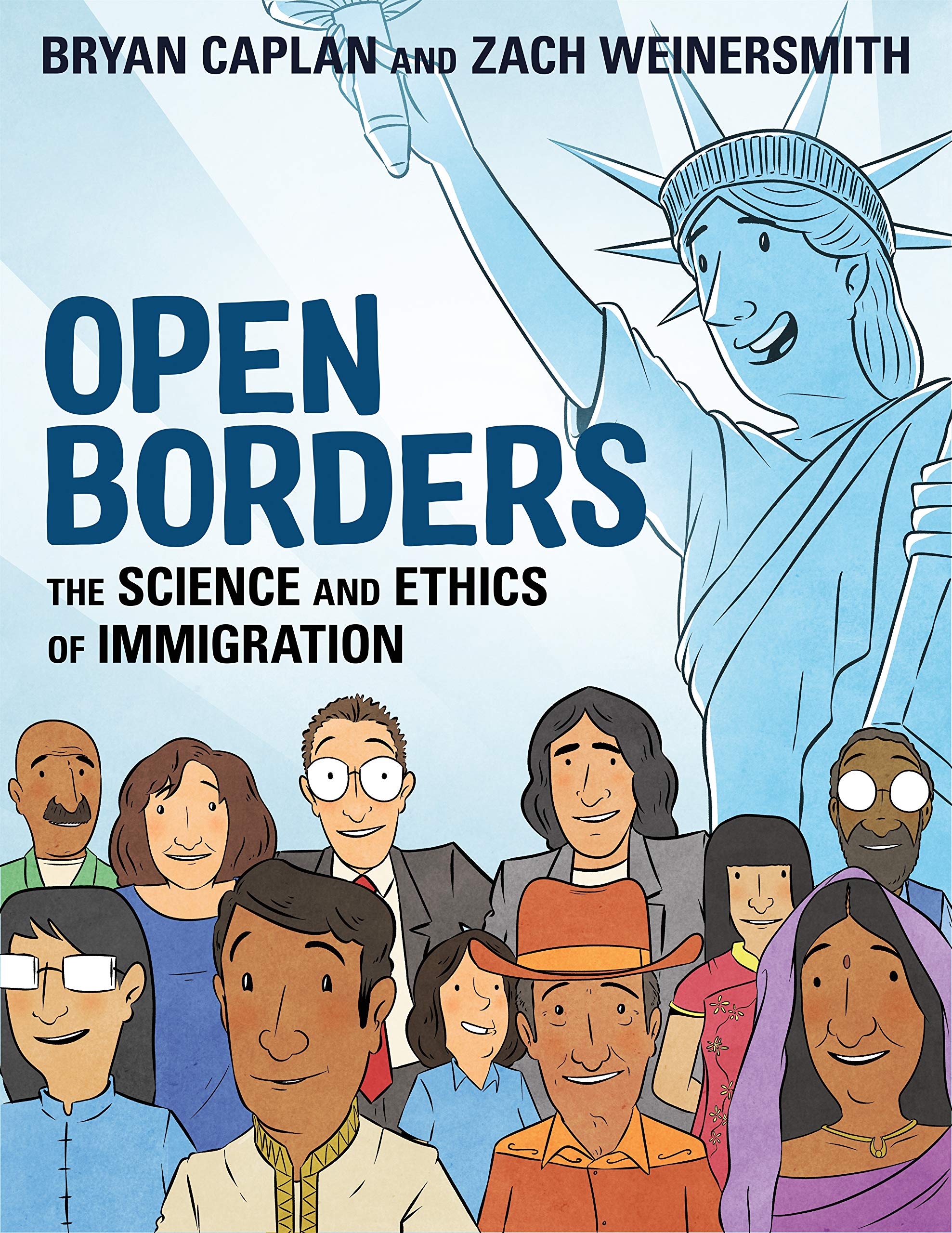
Ten years ago, I published “Seven Guidelines for Writing Worthy Non-Fiction.” Since my new Open Borders: The Science and Ethics of Immigration (co-authored with Zach Weinersmith) releases tomorrow, I decided to re-read my guidelines and do some soul-searching. Here are my guidelines – and my self-evaluation.
1. Pick an important topic. Immigration restrictions deprive billions of their basic rights to live and work where they like, and vastly decrease the wealth of the world. So the great importance of my topic is not in doubt.
2. Learn a lot about your topic. I’ve been blogging research and arguments about immigration for over fifteen years. The book has about three hundred references. Nor have I kept myself in a pro-immigration Bubble. I’ve done many formal debates on immigration, not to mention face-to-face arguments and social media. I am personally close with several smart people who oppose even existing levels of immigration, including my own father.
3. Keep telling yourself: “Once I perfect the organization of my book, it will practically write itself.” This guideline served me well. Open Borders has an introductory chapter, followed by four chapters on the leading arguments against open borders – native impoverishment, fiscal burden, cultural harm, political danger. Then there are chapters on keyhole solutions, philosophical consilience, and how to get from here to three. The end.
4. Never preach to the choir. I give myself stellar marks here. Four full chapters are devoted to counter-arguments, including a lengthy discussion of immigration’s effect on national IQ. And I try to sell the conclusion to not just fellow libertarians, but utilitarians, egalitarians, wealth-maximizers, meritocrats, Kantians, Christians, and even citizenists. I reach out to Democrats and Republicans, liberals and conservatives. Readers who know nothing else about me can probably correctly infer a lot about my broader perspective, but at least they’ll have to make an effort. Indeed, some readers will probably just think of me as “an economist.”
5. When in doubt, write like Hemingway. The graphic novel format makes this especially easy, because the right picture really is worth a thousand words. This isn’t one of those graphic novels where two stick figures just converse with each other; I strive to make every panel visually intriguing.
6. Treat specific intellectual opponents with respect, in print and otherwise, even if they don’t reciprocate. Zach Weinersmith was a little worried that I beat up too severely on Milton Friedman for his “You cannot simultaneously have free immigration and a welfare state” line. Yet my respect for the man remains obvious. I doubt even Mark Krikorian will object to how we depicted him.
7. Don’t keep your cards close to your chest. My position’s right in the title. Almost no one will leave wondering, “What does the author really think?” Still, I have heard there’s a conspiracy theory floating around that I’m a crypto-restrictionist trying to discredit the cause of liberalization with my extremism. Strangely, though, no one is campaigning to give me a Best Actor Oscar…
I know, of course, that self-serving bias is a severe human problem. Even if I’m absurdly generous to myself, though, my co-author Zach Weinersmith incontrovertibly did a wonderful job of bringing my vision to life with his eye-popping illustrations. And while I wrote at least 95% of the words, he definitely added some great jokes!


READER COMMENTS
Steve Z
Oct 28 2019 at 8:48pm
I pre-ordered the book. Happy to score if when I get around to reading it. I’m looking forward.
Pat
Oct 30 2019 at 9:45am
If your book’s refutation of Friedman is similar to the link, I wouldn’t say you beat him up at all. It looks more like a swing and a miss to me. You say that few immigrants want a welfare check and want to earn real money as if that is enough to eliminate concerns about transfers to immigrants. Wanting to earn real money doesn’t mean you will earn real money (I don’t have any reason to believe that immigrants want to earn real money more than non-immigrants, who often take the welfare check because they aren’t able to earn more).
JW
Oct 31 2019 at 11:19am
That isn’t what he argues at all. Most of our welfare goes to the very old (social security and medicare) and the very young (education). Most immigrants who come to work are working age adults, who don’t fall into either of these categories.
Comments are closed.